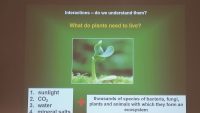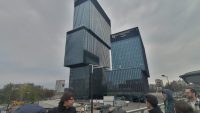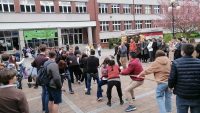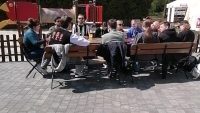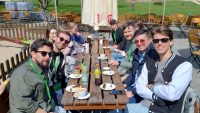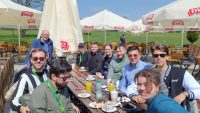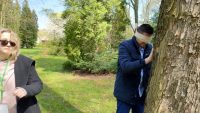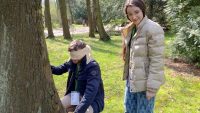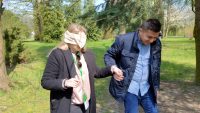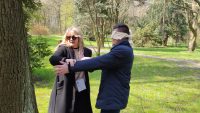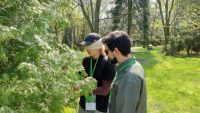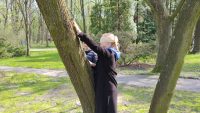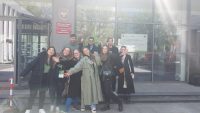T4EU Week at University of Silesia: Student Impressions
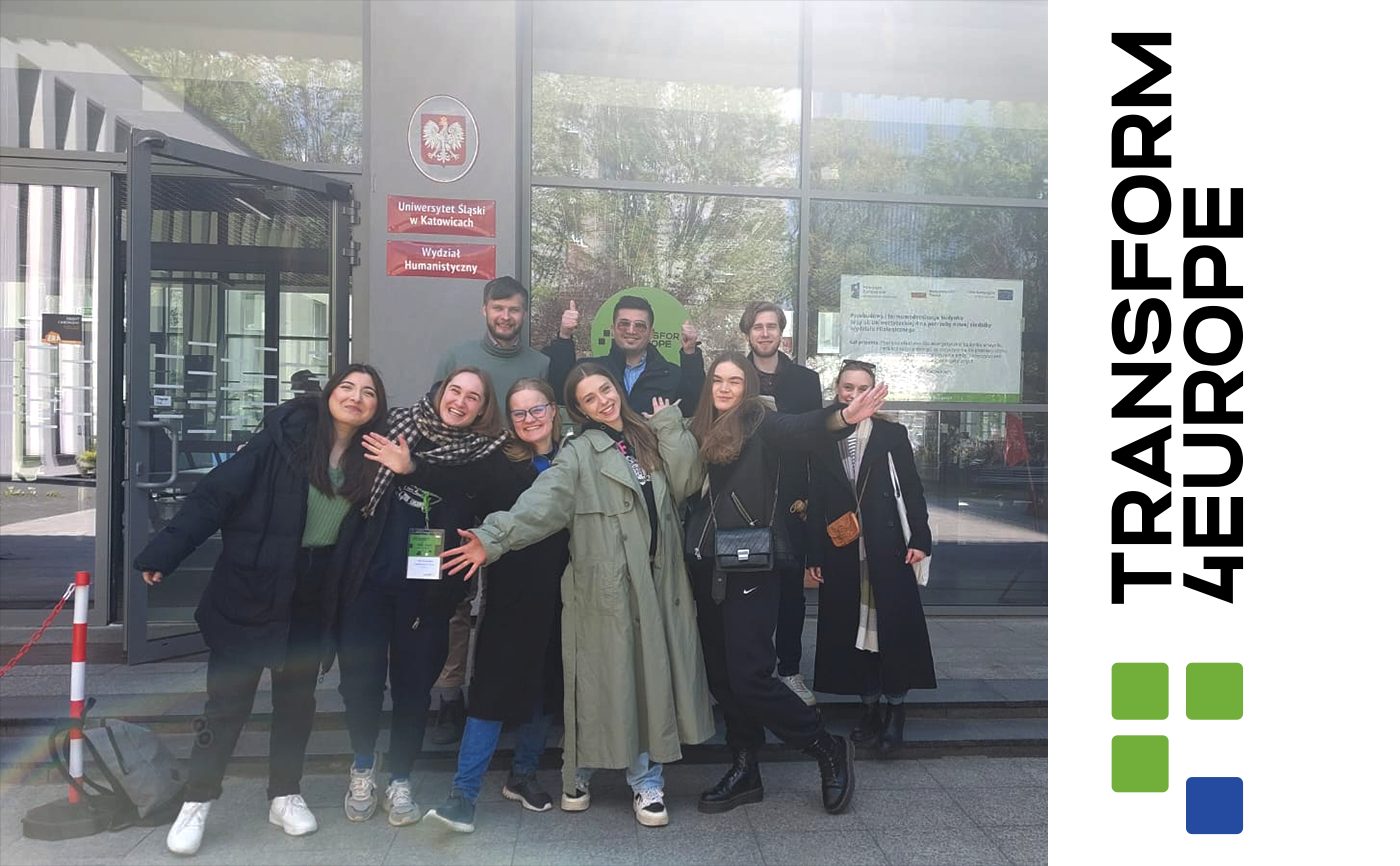
VMU student Fras Omer writes about his experience as a student during the Transform4Europe Week at the University of Silesia in Katowice, Poland on 24–28 April 2023.
A bit about Transform4europe
Transform4Europe is a program that gives students and other participants chances to learn more about different topics, meet new people from universities all over Europe, and see places in the country where the program is held. It encourages both students and teachers in higher education institutions to share and exchange knowledge, think critically, and learn about human values. The program encourages participants to share their ideas and ask important questions across a wide range of disciplines and fields, such as social justice, equality, and sustainability. It also encourages interdisciplinary collaboration with the goal of tackling complex social and environmental issues from different points of view and bringing them to an international and intercultural exchange table for discussions with a focus on building networks that can help solve these problems.
Overall, Transform4Europe encourages, supports, and tries to create a new generation of leaders who can deal with the global challenges that will shape the future of the Earth and make it possible to make the world a better place for all living beings.
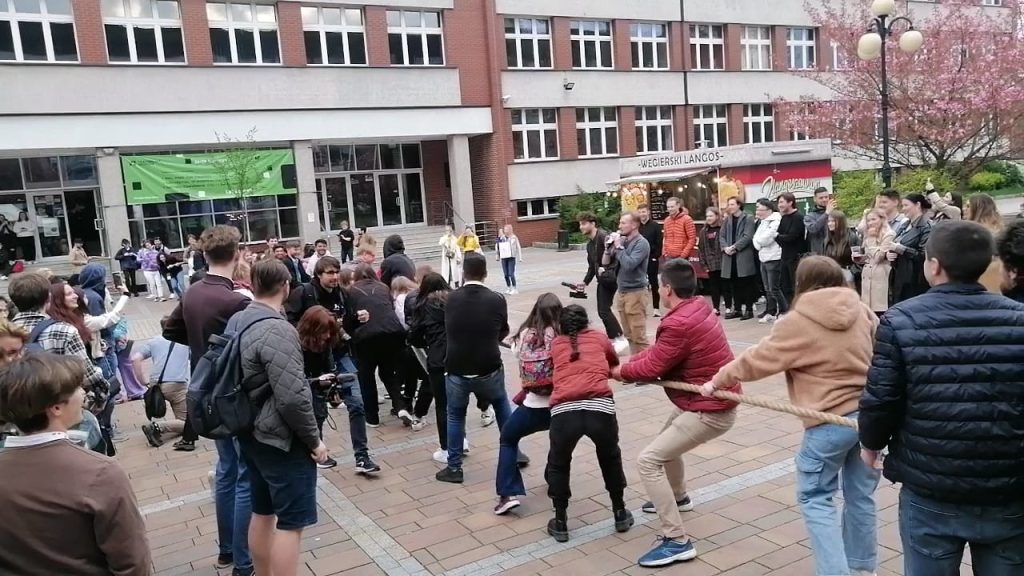
The University of Silesia in Katowice, Poland, 24-28 April 2023
When visiting a new location, it is a common thing for humans to have preconceived notions, ideas, and expectations. Keeping all of this in mind, I was wondering whom I would meet and how the program would facilitate my access to new experiences and information, and opportunities. I had no idea what it would entail or how it would contribute to a greater expansion of my university-level knowledge. When I arrived at the University of Silesia, I was given the schedule for the program classes as well as a list of all the locations that were to be visited. The program in Silesia was primarily divided into two streams: the Didactic Stream (Modules) and the cultural and social stream. Additionally, each stream comprised several modules (classes) or activities (site visits).
The first stream included five modules such as below:
- Challenges and Choices of the Anthropocene epoch. Module teacher: Prof. Piotr Skubata PhD.
- Found in translation: how to understand cultures (and nature). Module teacher: Katarzyna Ponikowska, PhD
- Negotiate your way in life and business. Module teacher: Iwona Wojtala, MA
- Metaversum and Law. Module teacher. Rafat T. Prabucki, PhD, Jakub Wyczik, MA
- Gender equality in society. Module teacher: Magdalena Pottorak, PhD, Jolanta Klimczak, PhD
The second stream included events and site visits such as:
- Integration Picnic
- Concert Hall of the Academic of Music in Katowice
- City of Katowice-Historical tour
- Silesian Park Walk
- In the city of Maus-Jewish heritage in Sosnowiec
The program also included some other activities such as Language for Lunch which mainly was about Polish Language and cultural classes.
I took part in the first Module, which was titled “Challenges and Choices of the Anthropocene Epoch.” It was led by Professor Piotr Skubata, and it consisted of five classes that primarily concentrated on the ecosystems, plants, living beings, gases, and everything else that contributes to the existence of our home, Earth. During the week of lectures, we were given some homework assignments; for instance, one of the assignments was to read the Living Planets Report 2022 and present some insights from it in class. On the other hand, on the last day of lectures, the class went on a trip to Katowice Garden, where we had a wonderful experience connecting with nature. (I will talk about what I learned from this experience in the next paragraphs). Students from a variety of universities were present, and the Module that I participated in had a total of 13 participants, two of whom were from Italy, two from Germany, three from Lithuania, five from Poland, and one from Bulgaria.
During the program week, the weather in Katowice was primarily cloudy/sunny with some rain on the first day after the class and when the historical event was finished, and during the integration picnic event, the rain added more energy to the activity with songs and dances. The week exceeded my expectations in terms of productivity, pleasure, and education. More students from Katowice, specifically from the University of Silesia, joined the Integration Picnic and participated in the activities that were held at the event. These students added value to the integration picnic by having conversations with other international students and introducing them to Katowice by suggesting places to visit and offering help in case someone needed it.
The concert Hall of Music in Katowice started amazingly with the Anthem of the Transform4Europe program with approximately 100 participants and was followed by performances from the representatives of the university’s alliance. During the latter, VMU representatives performed on Piano, Baritone, and Opera (The Marriage of Figaro). I can’t deny how emotional I became when I saw the performances of my university representatives while seeing fingers dancing on piano keys, the sound of baritone that filled the hall with positive vibes, and the opera which was performed amazingly with a high tone of voice and long breath. It was a performance which amazed the audience.
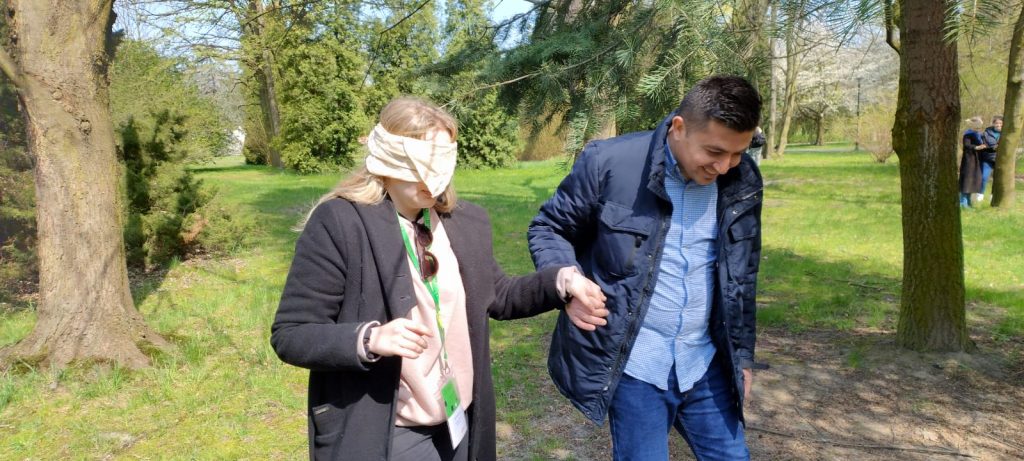
What perspectives and insights have I learned from the program?
I am a student in the VMU Faculty of Social Sciences, in the program Society, Culture, and Communication. I freely admit that being a part of the Transform4Europe program was an essential component of my academic experience. The program was the most international event that I have ever participated in, and it was the most important thing that added value to the way I was viewing the universe. Prior to enrolling in the program, I was firmly of the opinion that humans are the center of the universe.
As I mentioned in the previous paragraph, I will now talk about things that I learned and the things that I experienced there after my stay in Katowice for a week. During the week that I spent participating in a variety of events and attending five classes on the challenges and choices of the Anthropocene epoch Module, I was able to improve my communication skills and reshape my perspective on the way of communicating with other people from other societies and different cultural backgrounds, as well as with other living beings. For instance, I learned from the lectures that we as human beings, in addition to communicating with one another, also communicate with other living beings, whether consciously or unconsciously. These plants, animals, insects, bacteria, and other living beings communicate with one another through nature, which we are all a part of.
My newfound knowledge includes the following: nature does not need humans, but humans need nature; our bodies are teeming with life, including microscopic organisms like mites and bacteria; and these organisms are essential to our survival. Our final day of class was spent at Katowice Garden, where we were taught how to communicate with trees through role-play: the professor had us stand in a circle, close our eyes, and imagine what it would be like to be a tree, and as he was saying statements that supported our imagination of being trees, I found that I could actually feel like a tree.
After that, we moved on to the next activity, which was called “Feel and find your tree,” and it involved getting blindfolded while another participant takes you around and finds a tree where you touch and feel it while your eyes are covered. After that, the participant takes you back with the intention of distracting you and opening your eyes only when you are away from your tree, and then you have to go and find your tree by feeling and touching it. This activity was necessary in order to feel a connection with the trees and to understand how important it is for trees to play their role in maintaining the ecosystem’s balance.
As a student of the social sciences, I’ve learned that to gain a dispassionate understanding of human societies, it’s necessary to have some knowledge of other societies, such as those of animals, insects, and the unseen living beings that inhabit our bodies, soil, leaves, air, food, and everything else around us. This shift in perspective has helped me maintain objectivity in my research, as I no longer see humans as the center of the world but rather as just another creature among many.
Conclusion
The Transform4Europe program is essential for creating academic networks where students and educators of higher education institutions can express, create and invent ideas that support the well-being of the universe and bring the ecosystem to its balance. The program is designed to encourage and raise important questions, critical thinking, and interdisciplinary international exchange of knowledge and ideas that are meant to create a more equal society.
After spending a week participating in the program at the University of Silesia in Poland, I came away with the realization that everything is interconnected, and that communication is crucial for the survival of human and nonhuman societies alike because all creatures are affected by and affect each other in one way or another.

